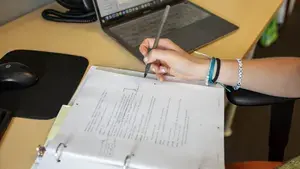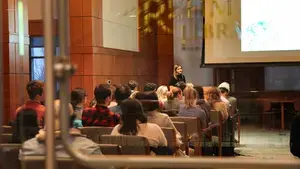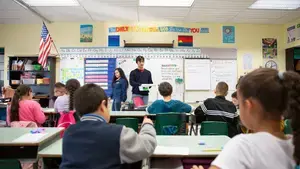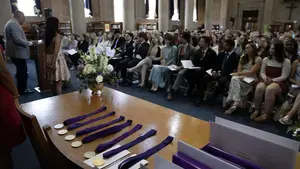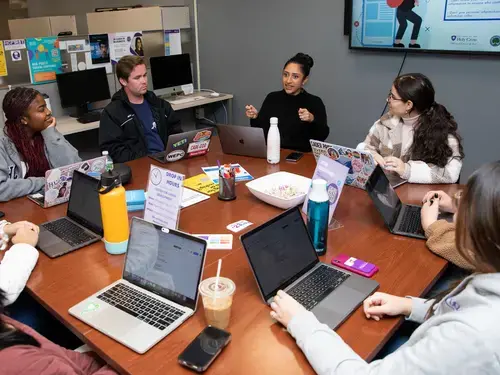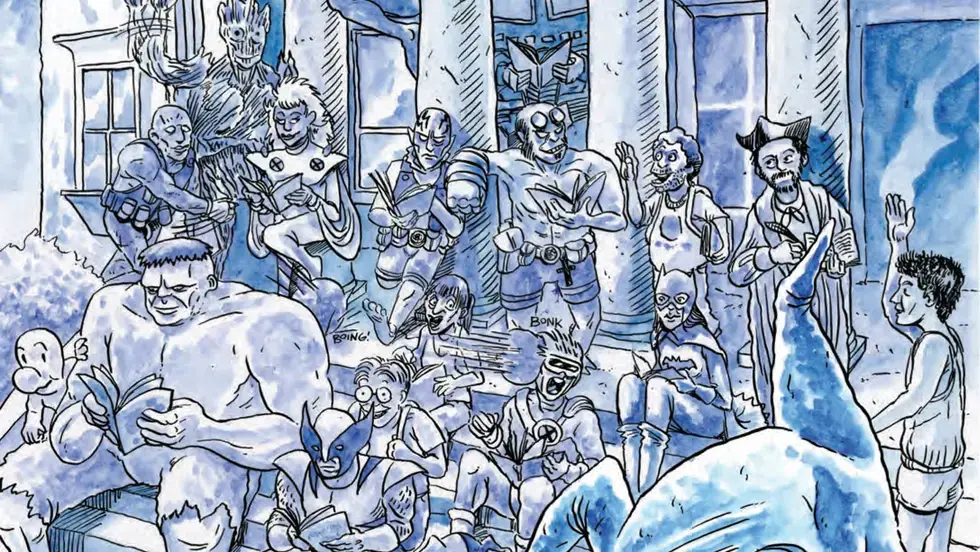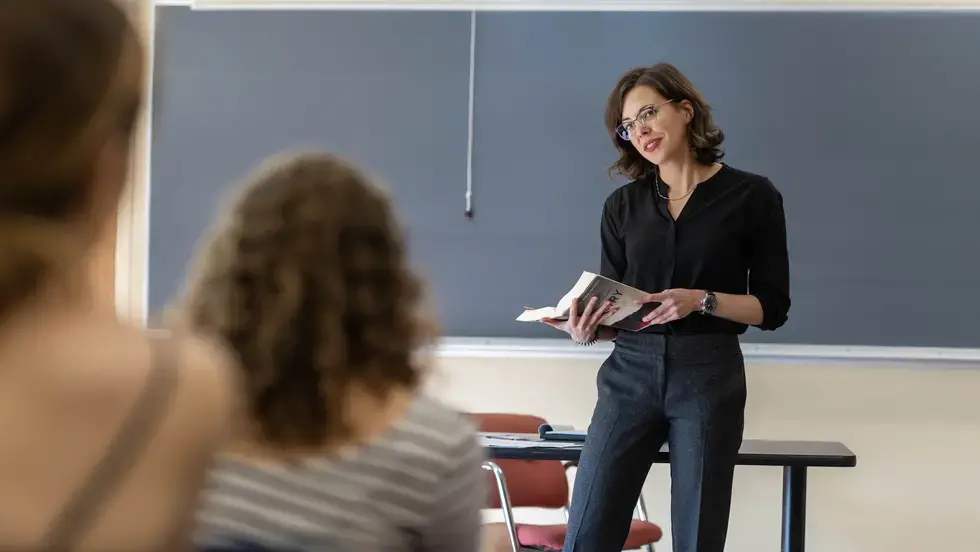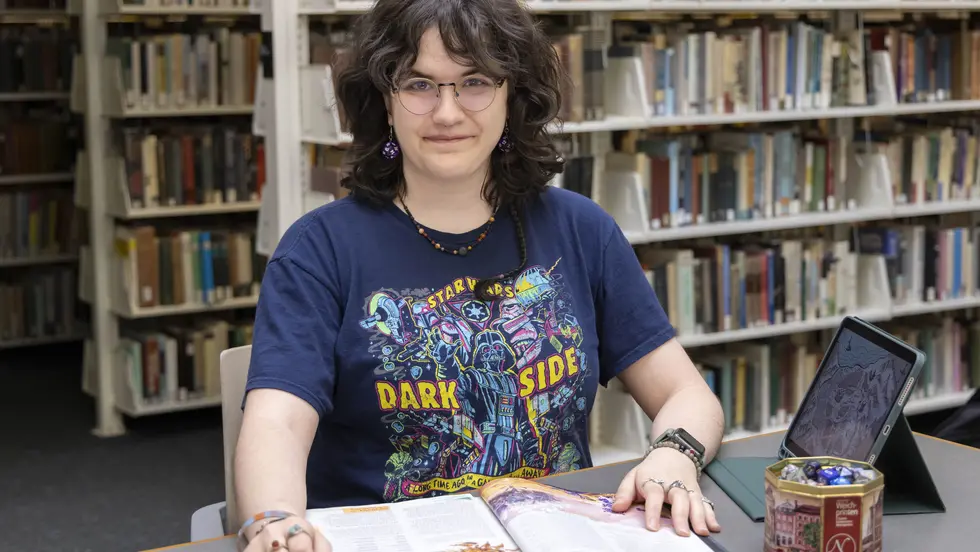
English
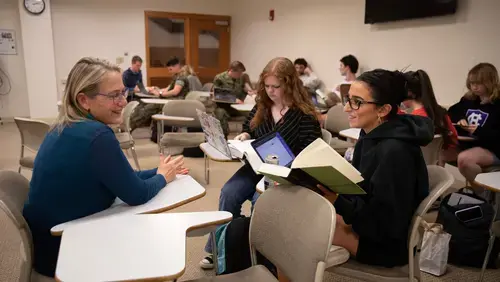
Areas of Study
Each semester the department offers approximately 25 upper-division courses for majors, as well as numerous offerings for non-majors at the introductory and intermediate levels. These include:
- Courses organized by literary theme, genre, author and historical period
- Courses in poetics, literary theory and critical theory
- Creative writing courses
- Academic and digital writing courses
- Interdisciplinary courses cross-listed with Africana Studies; Catholic Studies; Gender, Sexuality, and Women's Studies; and Peace and Conflict Studies
Requirements
English majors take 11 courses in English, starting with one introductory course, Poetry and Poetics.
Two Intermediate Courses: Touchstones I and either Touchstones 2A or Touchstones 2B. Touchstones courses may be taken in any order. If the student intends to study abroad in a non-English-speaking country in the third year, it is particularly important that these courses be completed in the second year.
Eight Advanced Courses, fulfilling the following categories.
Download the Fall 2025 Courses that Fulfill the Requirements (PDF)
- GROUP A – Pre-1800: 2 courses, each from a different period among Medieval, Renaissance, and 18th-century historical periods.
- GROUP B – 19th century: 1 course from the 19th-century historical period, British or American.
- GROUP C – Marginalized Voices: 1 course. This group includes all courses focused on literature or theory written by or about groups traditionally underrepresented in the canon — e.g. with respect to gender, ethnicity, or class.
- GROUP D – Theories and Methodologies: 1 course. This group includes all seminars and all courses that offer a sustained methodological or theoretical consideration of the study of literature or language.
Students with AP credit in English are not awarded credit in the major or advanced placement in the English curriculum.
Meet Your Department Chair

Opportunities
Creative Writing Program
The Creative Writing Program offers students the opportunity to pursue fiction, nonfiction, and poetry. Students have the opportunity to pursue a creative writing concentration within the English major. Students who are not English majors can declare a minor in creative writing.
Honors Program
The English Department Honors Program is designed for selected members of the senior class who have demonstrated excellence and an aptitude for independent research in their studies of English or American literature. Admission to the program is competitive; contact Professor Susan Sweeney for more information.
Lectures and Social Events
The department also hosts a number of lectures and social events each academic year, providing space for faculty and students to engage in dialogue with one another outside of the classroom. See Ignite for more information.
Teacher Education Program
The Teacher Education Program (TEP) at Holy Cross prepares students for licensure in the Commonwealth of Massachusetts. Students majoring in biology, chemistry, classics, English, French, history, mathematics, physics, Spanish and visual arts are eligible to apply to the program. In addition to taking courses in the major, students enroll in education courses specifically designed to promote excellence in teaching.
Sigma Tau Delta
Sigma Tau Delta is the International English Honor Society. Sigma Tau Delta offers several scholarships, awards, and opportunities for publication in The Rectangle, its award-winning literary magazine, and the Sigma Tau Delta Review, its literary journal for critical and analytical essays. For additional information, contact Elise Saad, English department Administrative Assistant.

